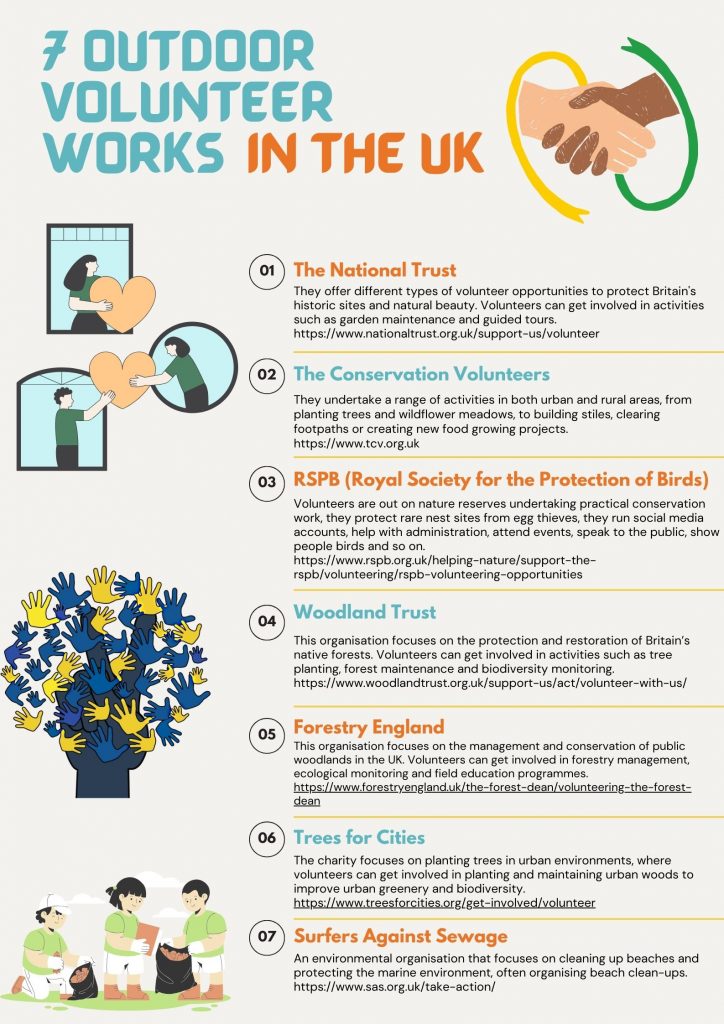WWOOF is a global organisation that provides young people voluntary experience on organic farms. However, the new living wage standards may affect it. What could be at risks if this programme comes to an end?
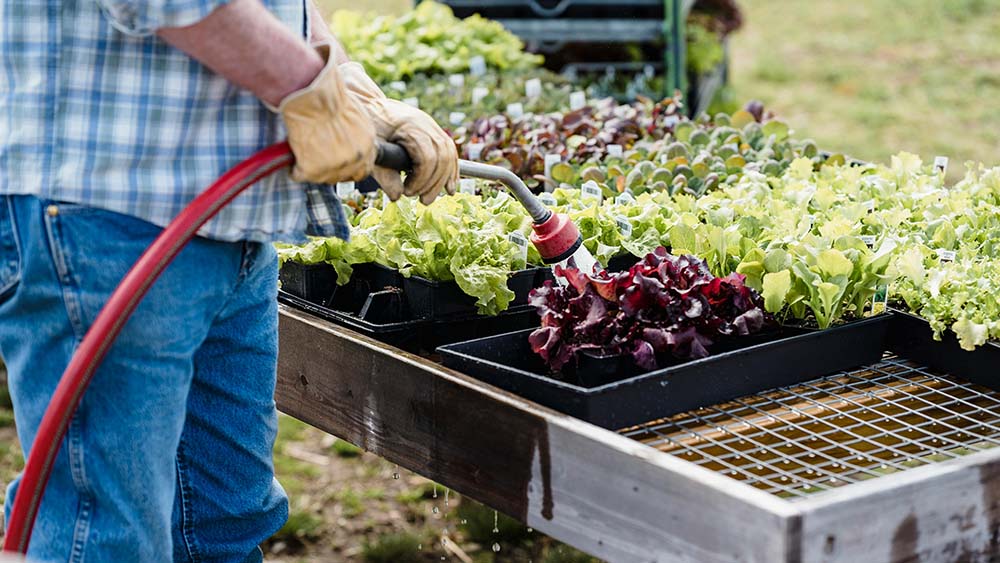
WWOOF provides a platform for volunteers to work on the farms in exchange for food and accommodation. They have maintained this mode of operation for many years, helping many hosts and volunteers to obtain mutual assistance. But recent developments regarding minimum wage legislation could have a negative impact on WWOOFing.
The new legislation requires all employers to pay minimum wage to the workers. While the legislation was intended to protect most of workers, it maybe not suitable to educational volunteering.
WWOOF UK Coordinator Scarlett Penn said, “The new legislation has brought significant challenges for farm hosts. Many hosts are upset and angry because they fear they’ll have to change the way they run their volunteer session which may lead to an end.”
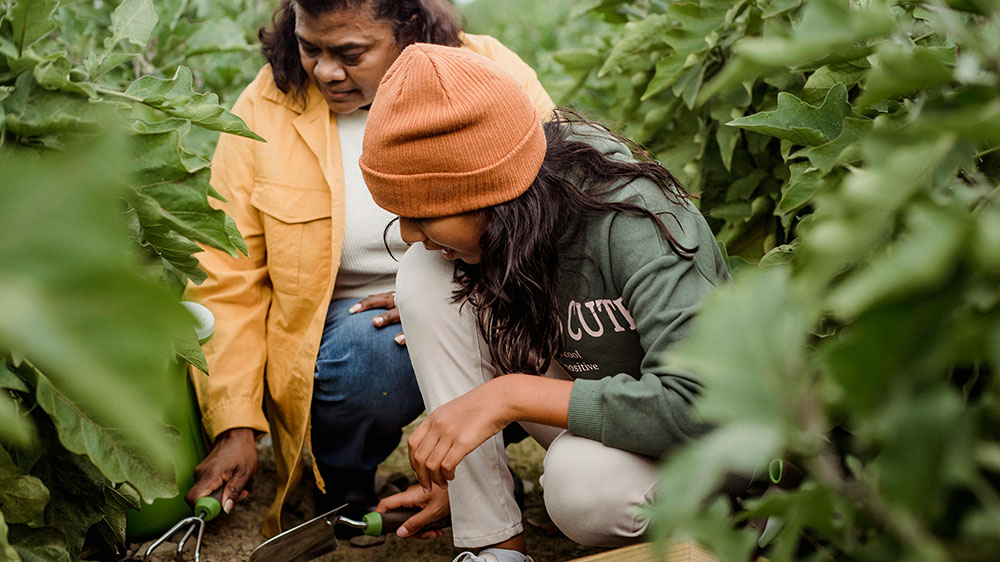
Since its foundation in 1971, WWOOF was called ‘Working Weekends on Organic Farms’ and grew into a global volunteering network.
Now it quickly expanded globally, more than 120,000 people participate in this programme each year, and these volunteers work on organic farms in over 130 countries around the world according to WWOOF International.
WWOOFing has successfully connected thousands of people around the globe and promotes the environmentally friendly agriculture and sustainable lifestyles.
However, this change in legislation has given rise to a wide-ranging discussion about the field of volunteering. If the wage legislation is strictly enforced, WWOOF UK foresees that some hosts may no longer participate in the program, particularly those with higher demands on volunteers or more commercial operations.
The organisation believes that by emphasising their educational mission and ensuring compliance, they can mitigate negative impacts. They anticipate a potential reduction in the number of hosts but believe that maintaining high-quality, positive experiences for volunteers will help sustain the program’s long-term viability.
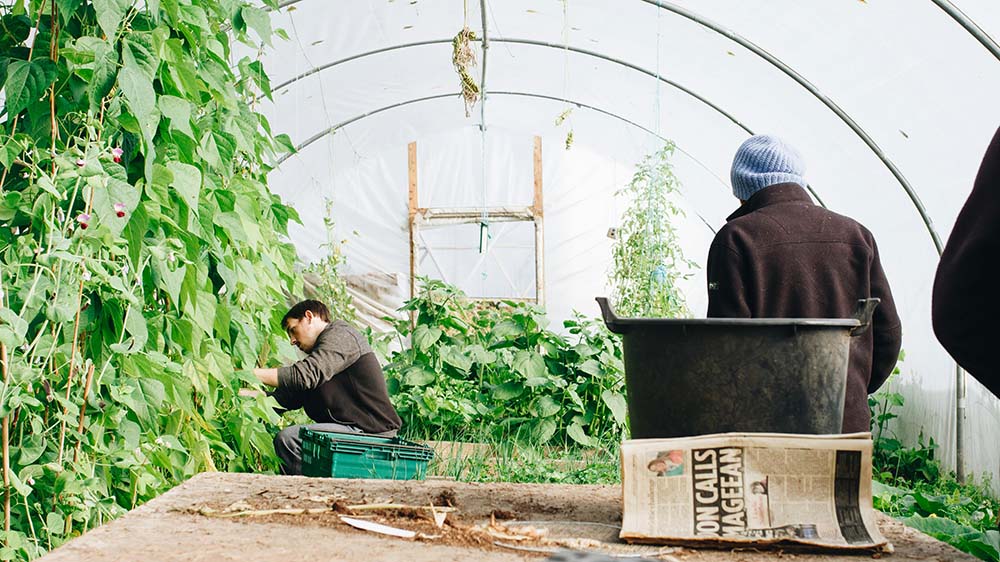
Farm owners have also expressed their views and share their same concerns on this issue.
Barry Graham, a host from Powside cottages, said, “Minimum wage legislation could influence organic farms and sustainable agriculture in a bad way. Many farms rely on the volunteer labor provided through programs like WWOOF, and imposing minimum wage requirements could reduce the number of opportunities for volunteers to learn and contribute to sustainable practices.”
Neil Kingsnorth from Patch of the Planet believes that hosts may find it challenging to follow the new legislation, and thus stop the volunteer programme.
Neil said, “The recent change in minimum wage legislation may affect WWOOF. as this requires hosts to pay volunteers a minimum wage, which contradicts the core principle of WWOOF as a volunteer exchange of work in exchange for accommodation and food.”
With those worries, WWOOF UK is adapting to the new minimum wage requirements by increasing communication with hosts to ensure compliance with the law. They are planning to provide more support and guidance to their hosts, emphasising the educational and voluntary nature of their programs.
Scarlett said, “We try to set up a thorough orientation process and a dedicated support system to address any queries hosts might have, ensuring that all activities align with legal requirements and the organisation’s educational goals.”
“These measures aim to create a supportive environment for both hosts and volunteers, ensuring the integration of volunteers into the daily operations of various farms,” Scarlett said.
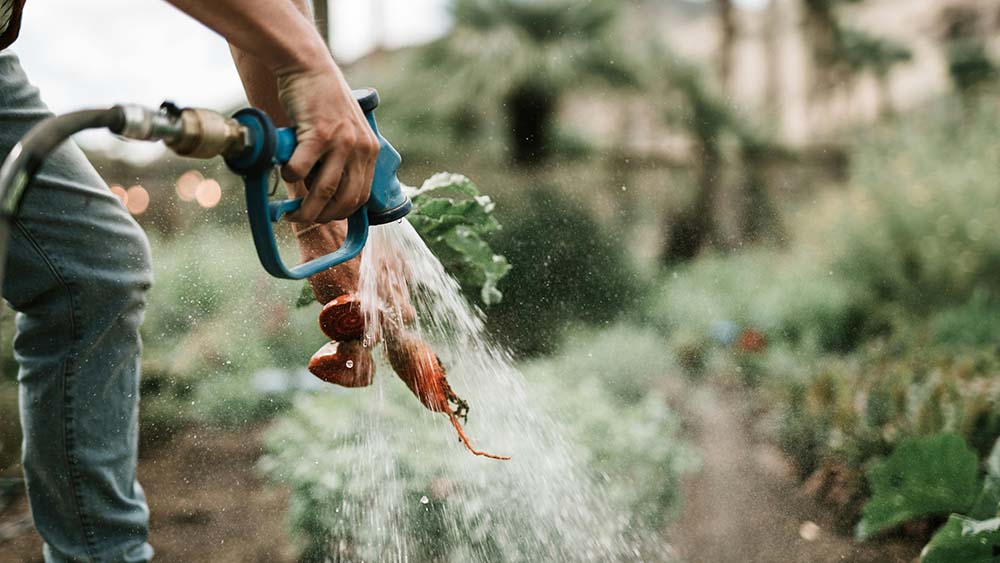
Different farms have varieties of farm works in everyday routines. Volunteers at Barry’s farm can take part in a variety of tasks, including landscaping, working in woodlands, path building, stone building, stream clearing, and building maintenance.
And volunteers at Neil’s farm are involved in various tasks such as weeding, willow weaving, making compost, planting trees, and working with rootstocks. These tasks provide a range of experiences and skills for the volunteers.
Barry has suggested to volunteers that, “Volunteers need to come prepared to work and understand that WWOOFing is not a free holiday but a mutual exchange. Volunteers should come with the right attitude and be ready to give their all to the work and the environment.”
He also emphasised the importance of being open to learning and making a positive contribution to the host farm.
Barry said, “The tasks we provide are important because they contribute to the maintenance and improvement of farm facilities. During the practices, volunteers gain practical experience and a better understanding of sustainable agricultural practices.”
And Neil advised that, “Volunteers to come to the various tasks with an open mind and to take full advantage of the learning opportunities on offer. They should be prepared to work hard but I ensure that they are not overburdened.”
He highlighted that it is important to be willing to try new things, and at the same time enjoy the unique experience and personal growth that participating in a WWOOF project brings.
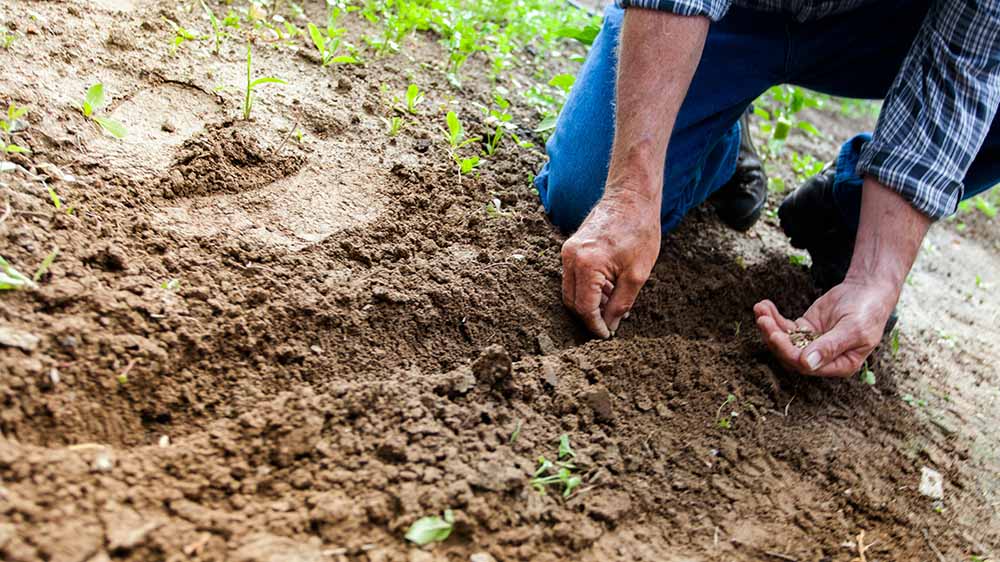
In addition to involving volunteers in the daily operations of the farm and providing them with food and living, farmers sometimes provide entertainment. They ensure that volunteers understand their roles and responsibilities and take the time to teach and guide them through various tasks.
It’s not just a volunteer works, it’s also a unique experience.
Lorenz Grischott and Christina Grischott from Switzerland who has stayed in Barry’s farm for fews days shared their feelings about this volunteer project.
Lorenz said, “We were happy we could be their guests, sharing a moment in our lives, discussions and thoughts and really delicious meals, and helping a little bit with the amazing garden project.”
She also mentioned that Barry showed them around at the Loch Arthur Community where they could see the dairy, bakery and farm shop, agricultural fields and weaving. Barry also told them a bit about the history of that place. It left them a really impressive impression on what they have achieved there.
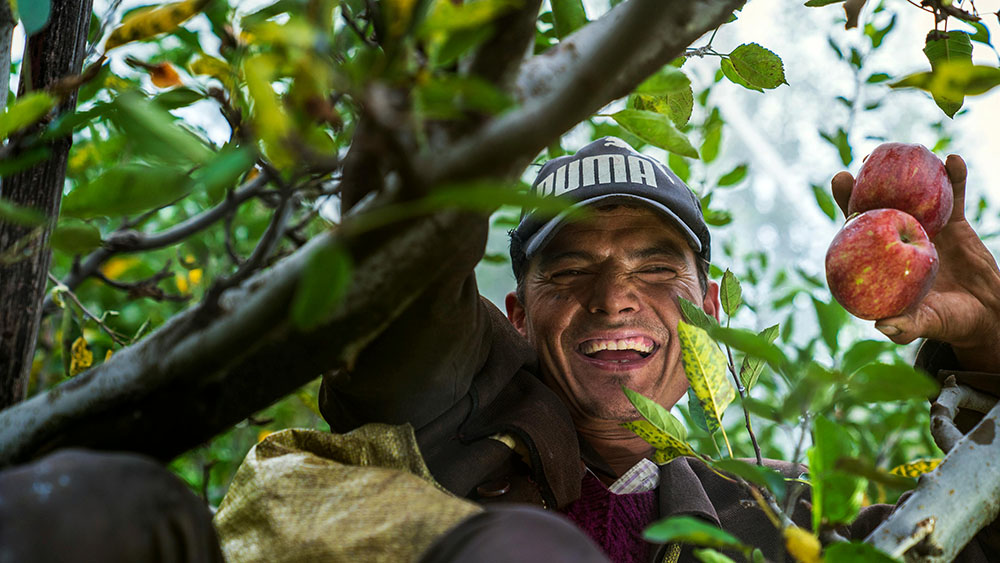
Neil said, “I had many memorable experiences with WWOOF volunteers. I remember a young couple who visited last year, we enjoyed many gorgeous sunsets over the Preseli Hills, had a couple of nights around the campfire.”
“As well as two men who were so intelligent and hard-working. Each volunteer brought special memories to the farm. I particularly enjoyed the recent experience of sitting around the campfire, singing songs with the volunteers,” Neil said.
Heidi Luo, a student who spent two weeks in Hollow Ash shared her memorable experience. She said, “That’s a wonderful memory during my Easter break. I learned such a vast amount from my host Jeremy, like how to graft fruit trees, planting rootstocks, hedge laying, how permaculture works, and so on.”
“More than that, I also have great time when I have a rest and chat with my host. They are such genuine and lovely people who care so much. I felt so welcome and at ease with them. They have a wonderful family and are incredibly generous, willing to share everything they had with me,” Heidi said.

Hannah Law and Jason Veitch are a young couple who are beginners to WWOOFing. Hannah said, “We learned so much during our time in farm, not just about pruning but also cider making, local history and living with the land. The host there is a really wonderful teacher to us.”
She recalled that the little hut they stayed was truly our home away from home, but it was warm, cosy and comfortable, and the views from it are just gorgeous.
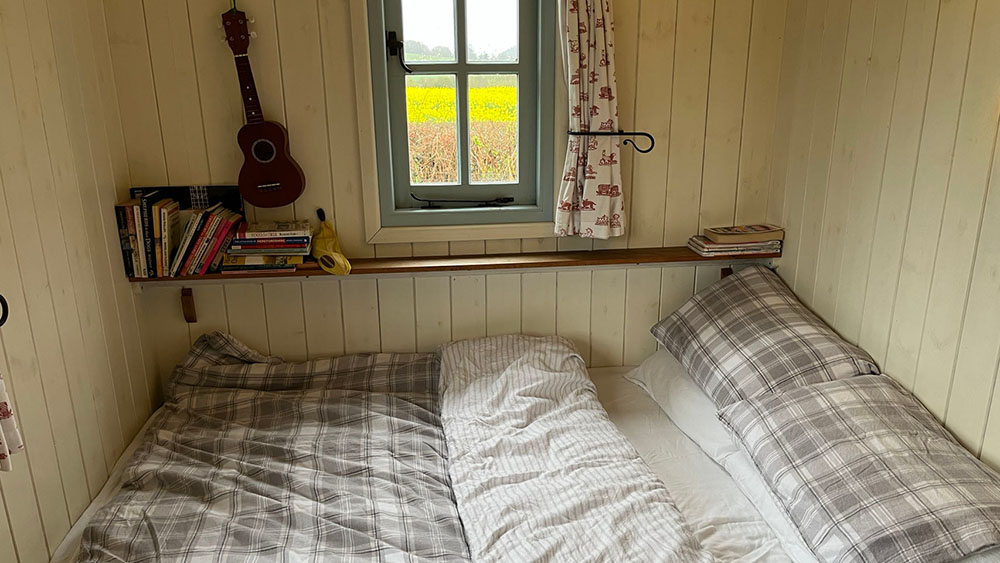
Based on those special memories from volunteers and hosts, WWOOF has promoted a deeper understanding of sustainable agriculture by providing invaluable experience.
However, if the programme were to be closed down due to minimum wage, both volunteers and hosts would lose an important communication and learning platform.
Despite these challenges, WWOOF UK is committed to adapting to new requirements by emphasising its educational mission and ensuring compliance for volunteers and farm hosts.
If anyone is interested in WWOOFing, please don’t be hesitated to sign up to your own unique experience from the link: https://wwoof.org.uk/en/.
